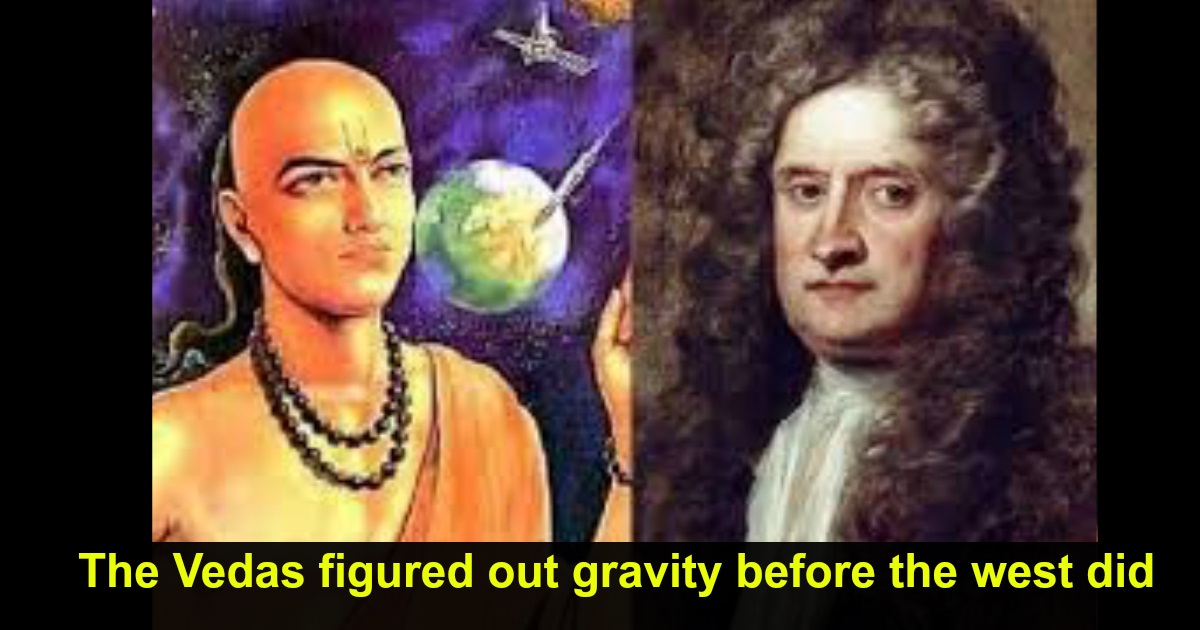


Consider this verse from the Vedas? “This earth is devoid of hands and legs, yet it moves ahead. All the objects over the earth also move with it. It moves around the sun.” - Rig Veda 10.22.14.
The explanation is similar to the concept of gravity which was only discovered by Sir Isaac Newton in 1687.

Image Source: mensxp.com
The Hanuman Chalisa is a devotional hymn dedicated to the famous monkey god Hanuman believed to be a Vanara or a monkey like humanoid. Hanuman himself was a staunch devotee of the Hindu God Ram. Coming back to the Chalisa, it mentions the verse “Yug sahastra yojana par bhanu, leelyo taahi madhura phal jaanu”. This translates to ‘[When] Hanuman travelled thousands of kilometers to swallow it thinking of it as a fruit’. The literal translation of the first three words of the excerpt describes the distance as being 1 Yuga=12000 years. 1 sahastra Yuga =12000000 years and 1 Yojana being approx 8-9 miles.
Hence 12000 x12000000 x 9=96000000 miles or 153,600,000 kilometers. The distance between the Earth and the Sun is 152,000,000 kms. Oh Goodness!!! They were off by just 1%.

Image Source: pinimg.com
Well, the credit of the discovery goes to the Greeks but equal credit should go to the Indian Astronomer and mathematician Aryabhatta who lived between 476 to 550 AD. Aryabhatta has been credited with a mathematical treatise, The Aryabhatiya that he wrote when he was just 23. It includes arithmetic, algebra, sums of power series, trigonometry, tables of sines, quadratic equations and fractions.
Image Source: www.alternet.org
The first documented calculation of PI in Europe was by Lambert in 1761. Aryabhatta was the most accurate in his deduction of the value of Pi at 3.1416. This is widely used today. Aryabhatta deduced a formula to prove that the Earth revolves around its axis. By estimating PI to be 3.1416, he worked out the approximate value of the circumference to be 39736 km. The actual circumference today is regarded as 40,075 Km. so, how cool is that?
Image Source: ytimg.com
In ancient India, there were four ways to measure a year that included the terms Nakshatra, Savana, Lunar and Saura. The Term Saura was based upon the method of the tropical zodiac that included seasons, the equinoxes, solstices, half years and months that were in relation to the 6 seasons. Based on Saura the length of one year was regarded to be 365 days, 6 hours, 12 minutes and 30 seconds.
Image Source: mensxp.com